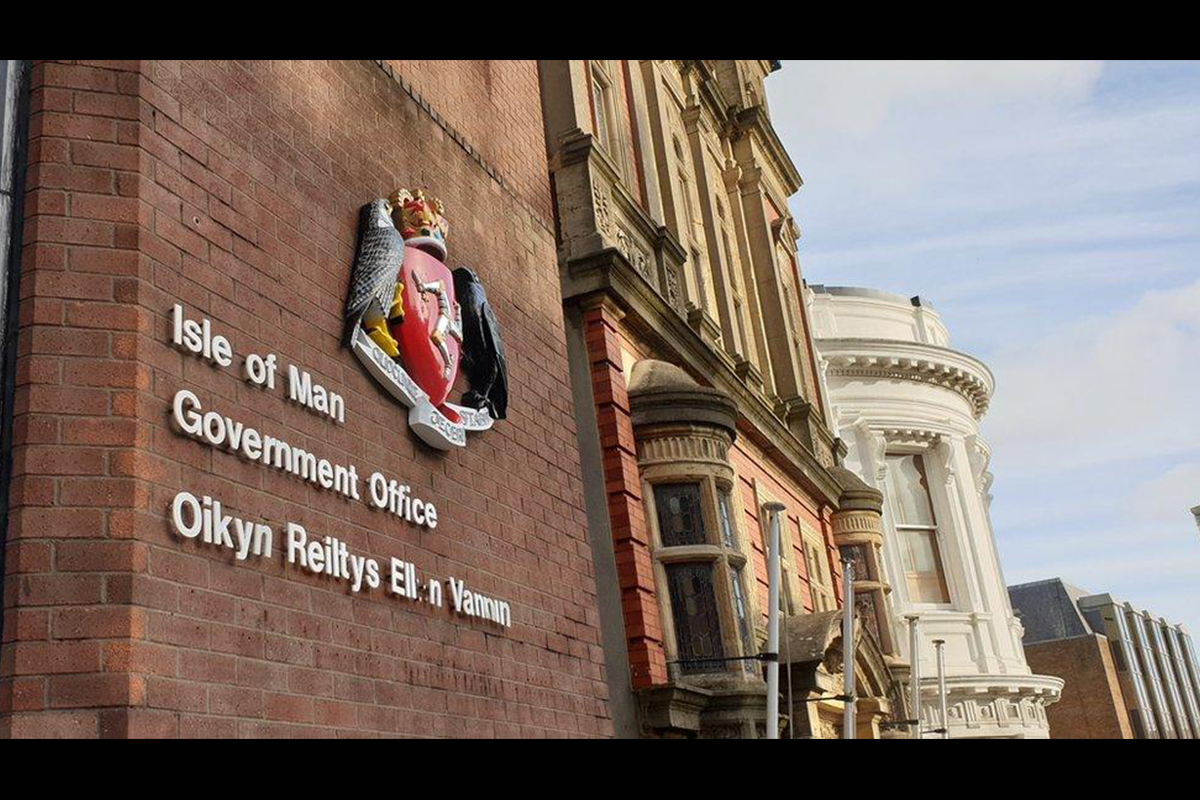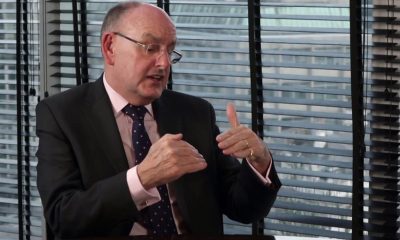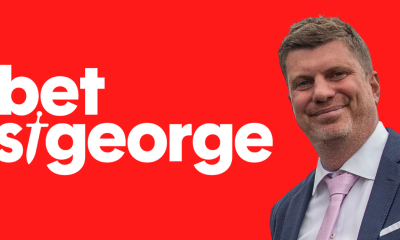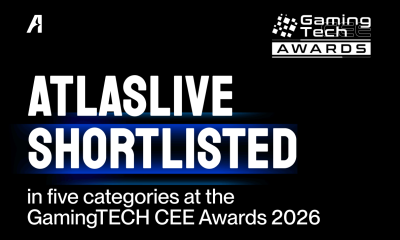Compliance Updates
Seven Commissioners Appointed to the UK Gambling Commission

The Secretary of State has appointed seven Commissioners to the UK Gambling Commission (UKGC).
Charles Counsell, Helen Dodds, Sheree Howard and Claudia Mortimore have been appointed for terms of five years. Lloydette Bai-Marrow, Helen Philips and David Rossington have been appointed for terms of four years.
Lloydette Bai-Marrow
Lloydette is an anti-corruption expert and economic crime lawyer. She is the Founding Partner of Parametric Global Consulting, an economic crime investigations consultancy.
Lloydette is the Chair of the Board of Spotlight on Corruption, a UK based anti-corruption charity, she sits on the Legal Panel for WhistleblowersUK and is a trustee for the Unite Foundation. She is a Member of the Conduct Committee of the Institute of Chartered Accountants in England & Wales.
Lloydette is a Senior Visiting Lecturer at the International Anti-Corruption Academy in Vienna, Austria. She is a Co-Founder and Director of the Black Women in Leadership Network (BWIL), a non-profit network committed to increasing the representation of black women in leadership and decision-making positions.
Charles Counsell OBE
Charles was Chief Executive Officer of The Pensions Regulator from April 2019 to March 2023. Prior to this he was CEO of the Money Advice Service and Executive Director of Automatic Enrolment at The Pensions Regulator.
As CEO of The Pensions Regulator, Charles developed the new corporate strategy to put the pension saver at the heart of the Regulator. He delivered their first Equality, Diversity and Inclusion Strategy and Climate Change strategies – both focused on driving change in the regulator and across the Pensions Sector.
Throughout his career, his roles have focused on setting up and delivering large change programmes requiring significant stakeholder relationship engagement: initially in the private sector and latterly in senior public sector appointments.
Helen Dodds OStJ
Helen Dodds is an international lawyer, consultant and board member. She is currently a board member of the Human Tissue Authority, a director and trustee of the St John’s Eye Hospital Group, a director of LegalUK, and an Honorary Senior Fellow of the British Institute of International and Comparative Law. Prior to this, she was a board member of the London Court of International Arbitration.
She is a qualified (now non-practising) solicitor and in her executive career she was Global Head of Legal, Dispute Resolution at Standard Chartered Bank. She has a degree in Modern History from Oxford University.
Sheree Howard
Sheree has over 25 years’ experience in the UK financial services industry with knowledge of the process of regulation and a key focus on risk management, audit and controls. Sheree is currently the Executive Director of Risk and Compliance Oversight at the Financial Conduct Authority. She is a Fellow of the Institute and Faculty of Actuaries.
Sheree has held roles in banking in areas of risk and compliance including Director of Advisory (Compliance), Commercial and Private Banking for the Royal Bank of Scotland; and Chief Risk Officer at Direct Line Group.
Sheree has been a Governor, including Chair, for more than 10 years of a maintained Special Needs School and has provided pro bono advice to a number of other charities.
Claudia Mortimore
Claudia has over 25 years’ experience of criminal law and regulation. She spent the first 10 years of her career working as a barrister then, after a career break to raise three children, prosecuted drugs, tax and money-laundering offences for the Revenue and Customs Prosecutions Office and fraudulent trading offences for the Department for Business.
Since 2013 Claudia has worked in senior positions in the Enforcement Division of the Financial Reporting Council, the body which regulates accountants, auditors and actuaries in the public interest and which sets the UK Corporate Governance and Stewardship Codes. Claudia has led major investigations into serious and complex audit and accountancy failures.
Claudia has a particular interest in Diversity and Inclusion, she has also played a key role in promoting the importance of mental health and well-being at the Financial Reporting Council.
Helen Phillips
Dr Helen Phillips is an experienced executive and non-executive, with a career spanning the public, private and not for profit sectors. Helen’s current non-executive appointments include Chair of NHS Professionals Ltd and Chair of the Chartered Insurance Institute. Helen is concluding a nine year term as Chair of Chesterfield Royal Hospital NHS Foundation Trust.
In 2015 she was appointed as a lay member of the Legal Services Board (LSB), she was appointed independent Chair in 2017, and served a six year term to 31 March 2023. She served as a non-executive director of Social Work England from 2018 to 2021. Helen has also held non-executive director roles in Higher Education and the schools sector. Previously Helen was Board Director of Yorkshire Water and Chair of Loop Customer Management Ltd, a Kelda Group subsidiary. Prior to that, her career as a regulator was as founding Chief Executive of Natural England and a Director of the Environment Agency.
Helen has a BSc in Zoology and a PhD in Environmental Science from University College Dublin. She is a Fellow of the Royal Society of Biology and a Liveryman of the Worshipful Company of Insurers.
David Rossington CB
David is a former senior civil servant. He has worked for the Department for Culture, Media and Sport (DCMS), including as Finance Director and acting Director General, and other Government departments including what is now the Department for Levelling Up, Housing and Communities.
Since stopping full time work, he has been a member of the Advisory Committee on National Records and Archives and currently serves as its Deputy Chair. He is Treasurer and Deputy Chair of Stoll, a charity for veterans and Treasurer of Arts at the Old Fire Station, an Oxford community arts charity.
David holds a degree in History and French from Oxford, a Masters in Public Policy from the Kennedy School, Harvard University, and an economics MSc from Birkbeck College, London. David took an accountancy qualification while a civil servant, although is no longer in practice.
Compliance Updates
Isle of Man Govt Publishes its National Risk Assessment (NRA) Covering Money Laundering Risk in Gambling Sector

The Isle of Man government has published its updated National Risk Assessment (NRA) for the gambling sector.
The assessment identifies key threats of Money Laundering (ML) to the island’s Gambling sector (both Terrestrial and Online) and the materiality and impact of those threats. Both terrestrial and online gambling have been given a risk rating, with an overall rating for gambling as a whole. These risk ratings and key findings of the NRA feed into the wider NRA work, ensuring the Island has a comprehensive view of the entire threat landscape.
The NRA aggregates, compares and weighs the findings across all sectors to determine which risks drive national exposure. This ensures the NRA is not hypothetical: it reflects actual sector-level dynamics so that the Island can understand the “bigger picture” with each sectoral assessment piecing together a border threat picture.
It is important that the island has a comprehensive understanding of risk at all levels, which does not reflect poor standards but instead outlines structural features of a sector. A robust NRA demonstrates that the jurisdiction understands its ML risks and applies targeted controls that are appropriate.
Risk Ratings are as follows:
• The gambling sector overall is assessed as medium-high risk for money laundering.
• The online gambling sector has a medium-high risk, reflecting a large number of international customers and transaction volumes.
• The terrestrial gambling has a medium-low risk, reflecting its smaller size, domestic profile and lower transaction volumes.
Key Takeaways
The Sectoral NRA highlights core threats in both the online and terrestrial sectors, including:
• Criminal ownership and control of gambling businesses or B2B services, via front companies and complex corporate structures.
• Exploitation by organised crime groups, including those from East and Southeast Asia, for money laundering, cyber-enabled crime and other illicit activities globally.
• Criminals use false or stolen IDs, synthetic identities, and mule identities to access gambling services and obscure their true identity to bypass due diligence controls.
• For terrestrial gambling, cash-intensive operations and casino-specific instruments remain primary channels for laundering domestic predicate offences.
It also highlights potential emerging threats such as:
• Use of advanced technologies (AI, deepfakes, virtual assets) to obscure identities, automate fraud, and facilitate cross-border transfers.
• Use of “turnkey solutions” (pre-packaged business setups) allowing rapid establishment of operations and access to banking services with minimal experience.
Importantly, the NRA makes it clear that these risks arise in specific circumstances with the sector operating legitimate international structures, strong governance and applying high standards of AML/CFT compliance. Those features that make activity higher risk for misuse should be considered within that context.
The post Isle of Man Govt Publishes its National Risk Assessment (NRA) Covering Money Laundering Risk in Gambling Sector appeared first on Eastern European Gaming | Global iGaming & Tech Intelligence Hub.
Compliance Updates
Wiebe Ruttenberg Appointed as Member of the Board of Directors of the Dutch Gaming Authority

Wiebe Ruttenberg has joined the Board of Directors of the Netherlands Gambling Authority (KSA) on March 1. As a member of the Board of Directors, he will be responsible for Digital Transformation.
Wiebe Ruttenberg has experience as a board advisor at Bunq and SecAlliance and as a guest lecturer in Operational & Cyber Resilience at the European University Institute. He previously served as Programme Director for Cyber Resilience Strategy at the European Central Bank and held various positions at De Nederlandsche Bank (DNB) and the Ministry of Finance.
Michel Groothuizen, Chairman of the Board of Directors of the Netherlands Gambling Authority, said: “I’m pleased with Wiebe’s arrival as a member of the Executive Board, responsible for Digital Transformation. The rise of illegal gambling sites, cryptocurrencies, and AI applications are just a few examples that require the KSA to continue evolving into a data-driven and risk-driven organization, with an innovative toolkit that allows it to tackle illegal providers in new ways. A key challenge in this regard is establishing collaborative relationships with public and private parties, including those within the financial sector. I’m pleased that Wiebe, with his extensive knowledge of and experience with the financial sector, technological innovation, and European decision-making, brings the external perspective the KSA needs in this area.”
The post Wiebe Ruttenberg Appointed as Member of the Board of Directors of the Dutch Gaming Authority appeared first on Eastern European Gaming | Global iGaming & Tech Intelligence Hub.
Compliance Updates
Sweden: Expanded Credit Ban & New Supervisory Actions

The Swedish Parliament (Riksdagen) has adopted an expanded credit ban under the Gambling Act (2018:1138). The amendments enter into force on 1 May 2026, with no transitional period.
Key consequences include:
• A de facto credit card ban for gambling as license holders and agents are prohibited from permitting or facilitating gambling financed through any form of credit.
• The prohibition also covers alternative credit arrangements (e.g., personal loans or similar financing solutions) where the use of credit becomes known to the operator, e.g. through KYC or duty of care interventions. License holders are required to have procedures in place regarding the actions to be taken in cases where they become aware that a customer is using credit to finance their gambling
• Operators must actively inform customers of the credit restrictions, for example in connection with deposits.
Swedish Consumer Agency Report – Review of Withdrawal Practices
On 24 February 2026, the Swedish Consumer Agency published a report assessing gambling operators’ withdrawal restrictions and terms.
The review identifies three key areas of concern for the current online gambling market:
Vague and discretionary wording
Terms including expressions such as “at our own discretion” or references to a “non-exhaustive list” limit predictability for consumers. Such formulations may create a significant imbalance between the parties and risk being deemed unfair.
Excessive verification requirements
Some license holders require extensive documentation at the withdrawal stage, including notarised copies of passports. Complaints show that these requirements are often applied only at payout, resulting in delayed withdrawals or frozen accounts. The authority emphasises that verification measures must be risk-based, proportionate, and not impose unnecessary barriers.
Insufficient transparency regarding withdrawal terms
In certain cases, minimum withdrawal thresholds, wagering requirements, or administrative fees are applied without being clearly disclosed in the terms and conditions. Referring consumers to external sources for key withdrawal rules reduces transparency and may render such terms unfair.
While the report does not have binding legal effect as such, it provides a clear guidance on the the Swedish Consumer Agency’s expectations and the likely direction of future supervisory assessments.
Supervisory Developments
In the early months of 2026, the SGA has initiated a number of supervisory cases.
Supervisory matters are currently initiated and/or pending in the following areas:
• 9 cases concerning B2C license holders’ compliance routines for verifying their cooperation partners, including ensuring that B2B partners hold the required permits, and the internal procedures governing such controls.
• 3 ongoing AML cases.
• 1 ongoing RG case.
• 2 supervisory cases directed at B2B permit holders regarding the provision of gambling software to entities other than licensed B2C operators.
• Additional cases relating to physical lotteries, compliance with information obligations in bingo halls and vessels in international traffic.
The post Sweden: Expanded Credit Ban & New Supervisory Actions appeared first on Eastern European Gaming | Global iGaming & Tech Intelligence Hub.
-

 Comatel6 days ago
Comatel6 days agoCOMATEL CELEBRARÁ UNA FIESTA PARA CIENTOS DE OPERADORES TRAS FINALIZAR EL PRIMER DÍA DE LA FERIA ESPAÑOLA, INTERAZAR
-

 Fotini Matthaiou6 days ago
Fotini Matthaiou6 days agoOctavian Gaming Titles Go Live with Novibet in Mexico
-

 Compliance Updates6 days ago
Compliance Updates6 days agoSpillemyndigheden: New Guidance on Responsible Gambling
-

 Amusnet6 days ago
Amusnet6 days agoAmusnet Introduces its “Jackpot Cards Plus” Island at Casino Adjara
-

 Fast Track6 days ago
Fast Track6 days agoFast Track Spark Lands in São Paulo for Advanced Retention Workshop
-

 Betting and Gaming Council6 days ago
Betting and Gaming Council6 days agoBGC: Government Tax Hike Boost for Black Market
-

 Canada3 days ago
Canada3 days agoPointsBet Canada to Contest Proposed 5-Day Suspension by AGCO
-

 Atlaslive6 days ago
Atlaslive6 days agoAtlaslive Shortlisted in Five Categories at GamingTECH CEE Awards 2026































